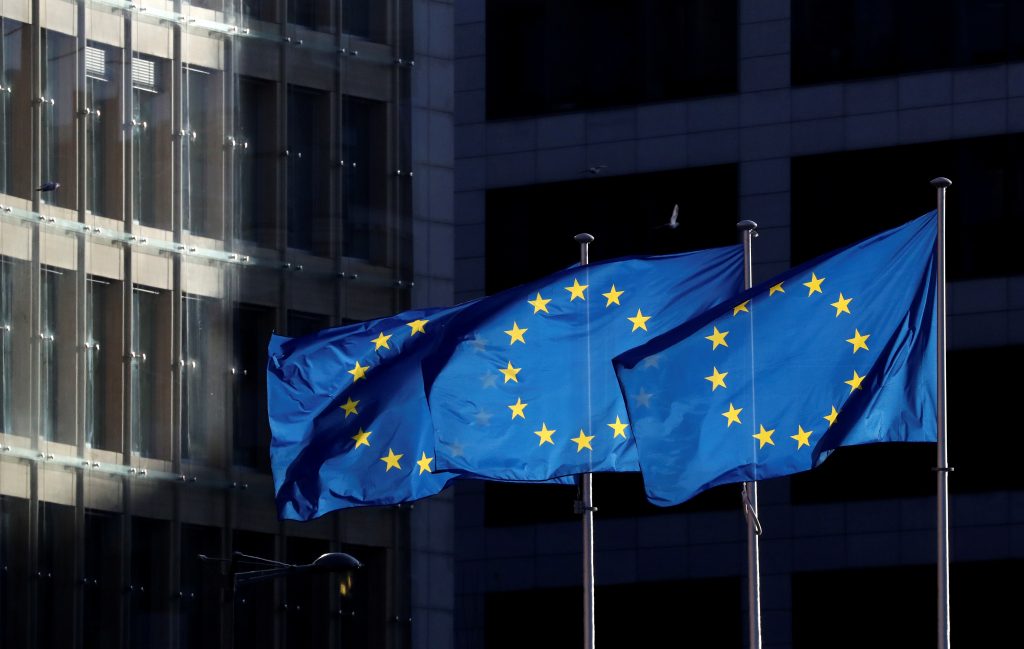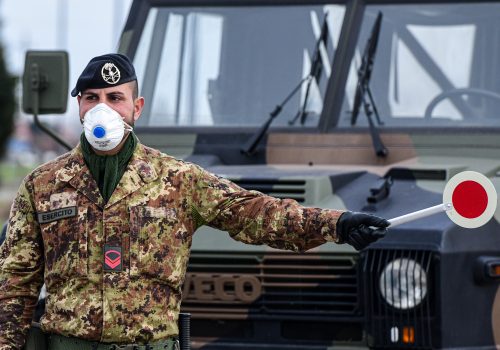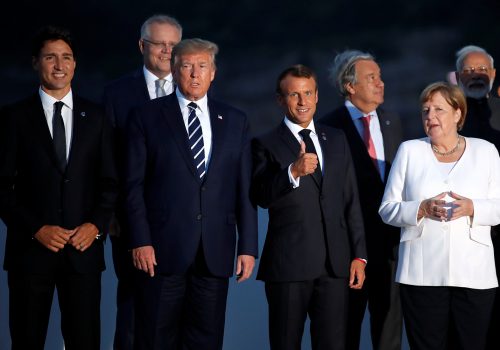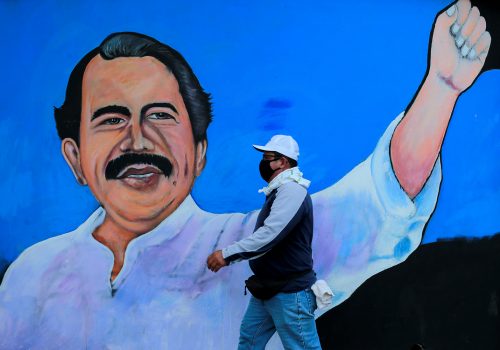On this week’s 70th anniversary of the European Union’s beginnings with the Schuman Declaration, the project that was launched to end centuries of war is in an existential struggle with a pathogen that knows no borders.
COVID-19 has won the opening rounds – challenging the economic solidarity, the political common cause and the public confidence on which the EU’s future relies. Some consider this week’s landmark decision by Germany’s Constitutional Court, casting doubt on the European Central Bank’s authority for its public sector bond buying, as just another nail in that supranational coffin following the United Kingdom’s departure.
As always in EU matters, however, the truth is more complicated. The European Union remains a heavyweight economic force with 22% of global GDP in 2018, which falls to some 18.5% after Brexit. It maintains its uncontested role as the world’s regulatory superpower. Beyond that, EU countries, through a host of government-supported schemes, have kept their pandemic-era unemployment at the far lower rate of 6.6% in March than in the United States, where it is 14.7% and rising. The real COVID-19 threat to the European Union isn’t one of its impending collapse but rather one of its perceived irrelevance as a public defender and global actor.
The danger is that the coronavirus period could so seriously dent public confidence in the EU’s value and so damage its international ability to act cohesively that its relevance to its own citizens and the world could suffer a stunning blow.
What is not well enough understood even by Europeans, let alone by Americans, are the global perils in a weaker and more vulnerable European Union. With a major power competition heating up between the United States and China, alongside a systemic struggle between authoritarian and democratic forms of government, how the European Union emerges from its COVID-19 challenges could be of decisive significance for world democracies.
While the coronavirus’ reach is global, nowhere is a common cause more crucial than among European countries. Their coming together after World War II ended conflict, expanded democracy, and contributed to Soviet Communism’s collapse. The EU’s enlargement after the Cold War sealed its position as one of history’s great democratizing forces – and as well as one of the United States’ greatest foreign policy accomplishments.
The timing of this historic test could not be more auspicious.
Get the Inflection Points newsletter
Subscribe to Frederick Kempe’s weekly Inflection Points column, which focuses on the global challenges facing the United States and how to best address them.
Today marks the 70th anniversary of the Schuman Declaration of May 9, 1950, when French Foreign Minister Robert Schuman proposed to place French and West German production of coal and steel under a common High Authority, open to participation of other West European countries.
“Europe will not be made all at once, or according to a single plan,” said the declaration with its modest language and extraordinary ambition to pacify a continent that had produced two world wars. “It will be built through concrete achievements which first create a de facto solidarity. The coming together of the nations of Europe requires the elimination of the age-old opposition of France and Germany.”
It was a cruel irony that in this anniversary week the German Constitutional Court would conjure up a new, fundamental challenge to the European Union. The judges put the European Central Bank on notice, arguing that the ECB had failed to conduct a “proportionality assessment” of bond buying to ensure “economic and fiscal effects” didn’t exceed the bank’s mandate and outweigh other policy objectives.
The ticking time bomb is that the court told the Bundesbank, by far the most significant central bank for eurozone monetary operations, to stop buying any more bonds within three months if the ECB didn’t comply.
ECB President Christine Lagarde, a lawyer herself, didn’t flinch from the challenge. “We are an independent institution, answerable to the European Parliament, and driven by our mandate,” she told Bloomberg in a webinar. “We will continue to do whatever is needed, whatever is necessary, to deliver on that mandate. Undeterred.”
However, the specifics of the German Court’s ruling aren’t as significant as the signal they send to other European countries looking to challenge the authority of EU institutions. The decision comes against the current European background music, heard particularly in Italy and Spain, where European solidarity has been lacking in the virus fight.
The economic numbers don’t help.
The European Commission said this week in its spring forecast that the pandemic-triggered economic slump “could ultimately threaten the stability of the economic and monetary union.”
It pointed to “severe distortions within the single market and to entrenched economic, financial and social divergences between euro area member states” as primary risks.
Those, in term, could feed growth gaps among the European states that could exacerbate tensions. It forecasts more than 9% GDP declines in 2020 for Greece, Italy and Spain. Germany would suffer less, with a 6.5% fall in growth.
Although the European Union has been slow to move, this week brought encouraging news of new momentum, including what The Economist called the welcome emergence of a “genuinely European debate.”
The EU confirmed a $3.3 billion commitment to help countries of the Western Balkans fight the pandemic, at a time when concerns were growing that several countries were more closely aligning themselves with Russia and an increasingly assertive and generous China.
The move came after a virtual EU-Western Balkans summit, where the 27 leaders of EU member states said, “this support and cooperation goes far beyond what any other partner has provided to the region and deserves public acknowledgment.”
What China can’t offer states in the Western Balkans is the prospect of EU membership, and that’s what Brussels did in March for Albania and North Macedonia. Accession talks could start within a year. But the road ahead will be a long one for them and four other aspiring countries of the Western Balkans, all of which “belong in the European Union,” said European Commission President Ursula von der Leyen.
Last Monday, the EU-led fundraising campaign for COVID-19 vaccines, treatments, and diagnostics reached some $7.5 billion euros, including $1.4 billion from the EU. French President Emmanuel Macron, who has warned that the EU faces “a moment of truth” for its political project, kicked in €500 million.
It’s not too late for the EU to demonstrate its resilience and relevance at this time of crisis. On this 70th anniversary, it’s also worth remembering the common global and transatlantic interest in European stability and success.
This article originally appeared on CNBC.com
Frederick Kempe is president and chief executive officer of the Atlantic Council. You can follow him on Twitter @FredKempe.
MUST-READS FROM A WORLD IN TRANSITION
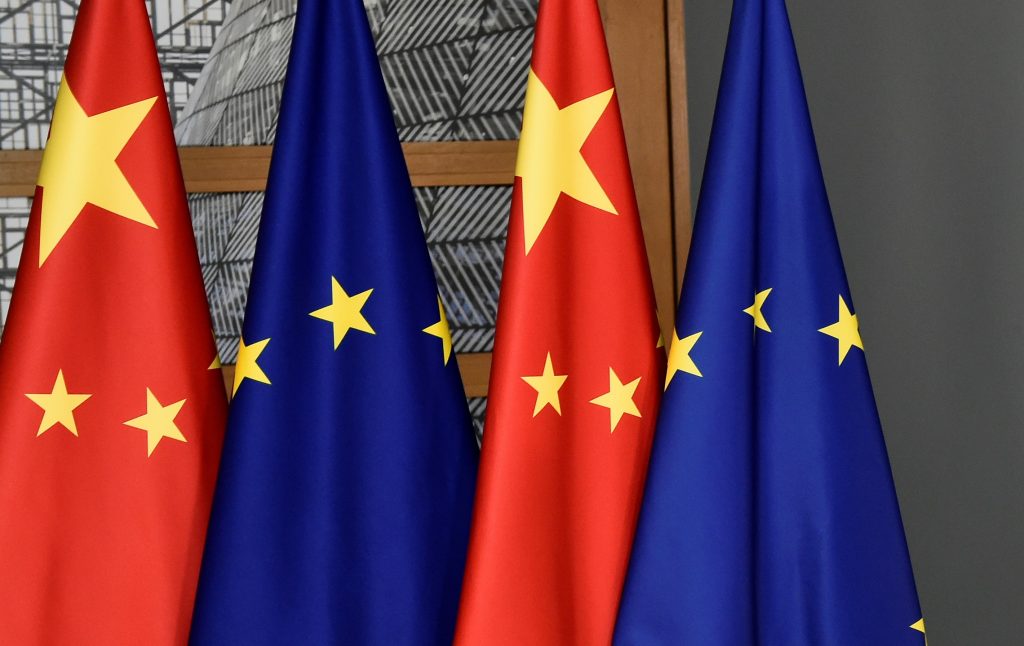
This week’s must-read is the most thorough, convincing and actionable roadmap I’ve encountered yet for how the United States could preserve its great power primacy by recognizing and acting upon “the power that resides at the intersection of economics and national security.”
The authors are David H. McCormick (Bridgewater CEO and chair of the Atlantic Council’s International Advisory Board), Charles E. Luftig, and James M. Cunningham. Take the time to read this one in its entirety, published this week in the Texas National Security Review.
The next two among the week’s top reads dig deeper into the EU story on its historic anniversary.
Luke Patey in Foreign Affairs argues convincingly that Europe’s economic dependency on China “is a myth.” Anu Bradford in Prospect Magazine rebuffs speculation about EU decline and chronicles the EU’s enduring role as a superpower regulator.
Former Australian Prime Minister Kevin Rudd, who is also an Atlantic Council International Advisory Board member, writes a warning for all of us in Foreign Affairs that both the U.S. and China could be diminished by COVID-19 and that international anarchy would be the result.
Also don’t miss the final item.
It includes two rich reflections of a literary bent in the New York Times. The first is a letter from Rodrigo García to his father, “Love in the Time of Cholera” author Gabriel García Márquez, on the sixth anniversary of his death. The second, written by writer and war veteran Elliot Ackerman, compares life during the coronavirus pandemic to his experiences in Iraq and Afghanistan.
#1. ECONOMIC STATECRAFT AND U.S. PRIMACY
Economic Might, National Security, and the Future of American Statecraft
David H. McCormick, Charles E. Luftig, James M. Cunningham / Texas National Security Review
The Texas National Security Review was launched in 2017 by War on the Rocks and the University of Texas, with the aim that its published work would be compelling enough to land on the desks of decision-makers, but be sufficiently rigorous to serve as foundational research for universities.
The cover piece of their summer edition meets those lofty standards.
David H. McCormick, Charles E. Luftig, and James M. Cunningham begin with the undeniable but often underrealized argument that “America’s economic power underwrites its national security.” They then exhaustively examine, with an actionable list of recommendations and reforms, how better to sustain that economic might and leverage it “in the service of American primacy.”
Write the authors, “the world is changing in unprecedented and disruptive ways, as the coronavirus is making clear. To preserve America’s primacy, its political leaders must leverage the country’s unique advantages through policies that strengthen America’s innovative capacity, economic statecraft, and position as the leader and center of gravity of the international community, while also making needed reforms to the processes and the workforce that guide such efforts.” Read More →
#2. HOW THE EU “RULES THE WORLD”
Why the European Union is not doomed to fail
Anu Bradford / PROSPECT MAGAZINE
Finnish-American author Anu Bradford, also a Columbia Law professor, argues that all the talk of EU disunity and decline “rests on an outdated view of power means in today’s world.”
She explains why it is that global companies from Google to Unilever, in search of economics of scale and standardization around the world’s most stringent standards, end up designing their products to meet European demands.
“Regulatory power persists even when many traditional tools of influence have become less deployable,” she argues. She details how EU regulations “influence the everyday lives of individuals around the world. They affect the food we eat, the air we breathe and the products we produce and consume.”
If you want to go deeper, you can order her ground-breaking book, “The Brussels Effect: How the European Union Rules the World.” My riposte: if the EU could innovate as well as it regulates, I’d be more convinced by the argument. Read More →
#3. EUROPE’S “CHINA MYTH”
Europe Can Afford to Fight With China
Luke Patey / FOREIGN POLICY
Luke Patey’s piece in Foreign Policy should be must-reading for Europeans who think their growing dependence on China requires them to bow to Beijing. Patey chronicles recent bullying that has included threats to Czech and German companies and political pressure to censure EU declarations.
“Europe’s economic dependency on China is a myth,” writes Patey, senior researcher at the Danish Institute for International Studies and author of the forthcoming book, “How China Loses: The Pushback against Chinese Global Ambitions.”
He argues that China represented just 5.5% of total EU member state trade in 2018, while close to two-thirds of total EU trade is among member states. His bottom line: instead of bending to China, it would be best for Europe to build its own industrial competitiveness, without which “it will continue to slip down the ladder in the global economy.” Read More →
#4. “UNCOMFORTABLE TRUTH”
The Coming Post-COVID Anarchy
Kevin Rudd / FOREIGN AFFAIRS
“…the uncomfortable truth,” writes Kevin Rudd in a provocative Foreign Affairs essay, “is that China and the United States are both likely to emerge from this crisis significant diminished. Neither a new Pax Sinica nor a renewed Pax Americana will rise from the ruins. Rather, both powers will be weakened, at home and abroad.”
Rudd worries that the result “will be a continued slow but steady drift toward international anarchy across everything from international security to trade and pandemic management.” This one is worth reading for U.S. and Chinese leaders eager to avoid the potential outcome if “the chaotic nature of national and global responses to the pandemic” set the standard for the future. Read More →
#5. “NOBODY TEACHES LIFE ANYTHING”
A Letter to My Father, Gabriel García Márquez
Rodrigo García / THE NEW YORK TIMES
After Our Nation Grieves, It Can Grow
Elliot Ackerman / THE NEW YORK TIMES
The New York Times delivers two literary takes on our globally shared pandemic.
The first was penned by Rodrigo García, marking the sixth anniversary of the passing of his father, Nobel Prize-winning author Gabriel García Márquez.
“It’s impossible not to speculate on about what you would have made of all this,” García writes, noting the continual riffs on his father’s novel, “Love in the Time of Cholera.” “… you would be eager to hear how lovers were braving every obstacle, including the risk of death, to be together. Most of all, you would be as endeared to humans as you ever were.” Read More →
The author and former Marine Elliot Ackerman writes of how his wife teases him by calling him Sobchak, as in Walter Sobchak from the film “The Big Lebowski,” the veteran who equates everything with Vietnam.
“My wars were Iraq and Afghanistan, and life during the coronavirus pandemic does keep reminding me of them,” he writes. “The way each day bleeds into the next. The threat that stalks outside. The surrealness of it all.”
Ackerman closes his reflection with Lebowski’s famous closing line: “The Dude Abides.” Read More →
More poetically, García concludes, “… the planet keeps turning and life is still mysterious, powerful and astonishing. Or as you used to say with fewer adjectives and more poetry, nobody teaches life anything.”
QUOTE OF THE WEEK
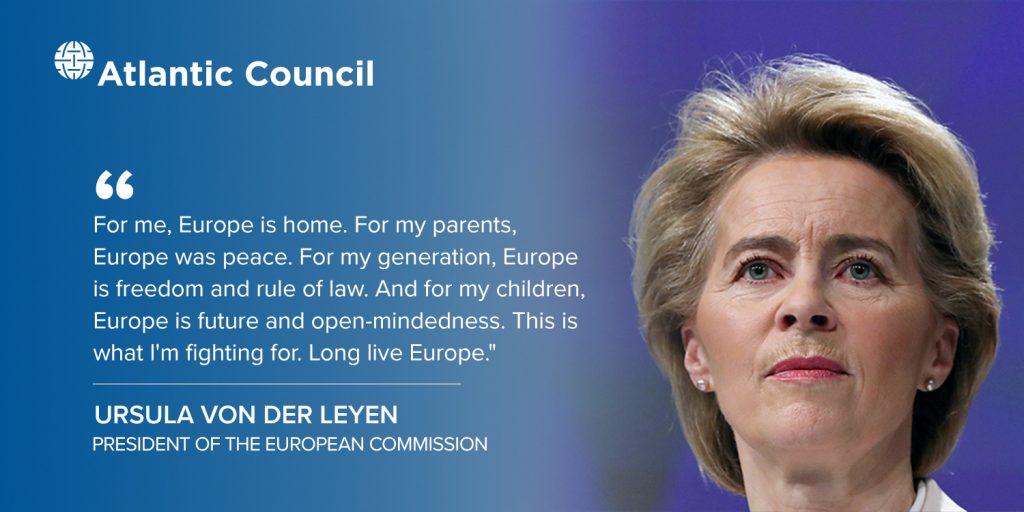
ATLANTIC COUNCIL TOP READS
Image: FILE PHOTO: European Union flags fly outside the European Commission headquarters in Brussels, Belgium, December 12, 2019. REUTERS/Yves Herman/File Photo
